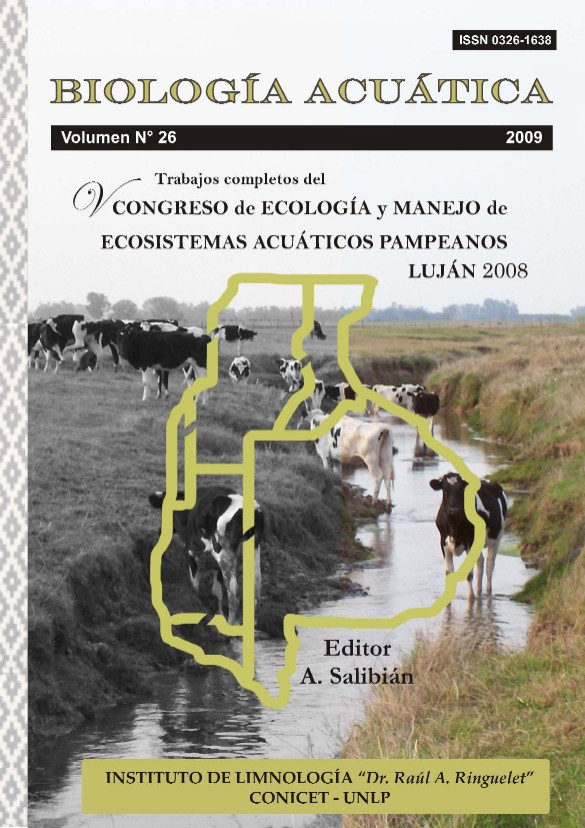Efecto del lavado de la ciudad de Santa Rosa sobre el estado trófico de una laguna arreica
Keywords:
trophic state, stability, flushingAbstract
Don Tomás is a shallow, hypereutrophic lake that received sewage inputs from the city of Santa Rosa until 1987. In 1993, the main body of water was divided into smaller adjacent ponds. One of these ponds, Canotaje pond (with a small surface area and average depth), receives an important urban runoff from the city. Thus, the high load of nutrients and sediments after a storm should result in a higher trophic state than Don Tomás. The objective of this research was to compare the limnological characteristics of both water bodies to verify their trophic status. We did not find any significant statistical differences among the measured variables in the two systems, except for water conductivity and suspended organic solids, which were higher in Don Tomás, and for dissolved phosphorus, which was higher in Canotaje. Laboratory experiments determined that the phytoplankton community of both systems was limited by nitrogen, which is consistent with the observed low Redfield ratio of dissolved N and P (1.32). Algal diversity in both systems was represented by 66 taxa, 1/3 of which belonged to the phylum Cyanophyta. In addition, a Planktothrix agardhii bloom was observed in both water bodies. From the present study, we determined that Don Tomás and Canotaje have the same trophic state (i.e. hypereutrophic). In spite of the high urban runoff loaded with nutrients and sediments into Canotaje, the high amounts of P present in this system sediments would make both ponds highly resilient to changes in trophic state.





















